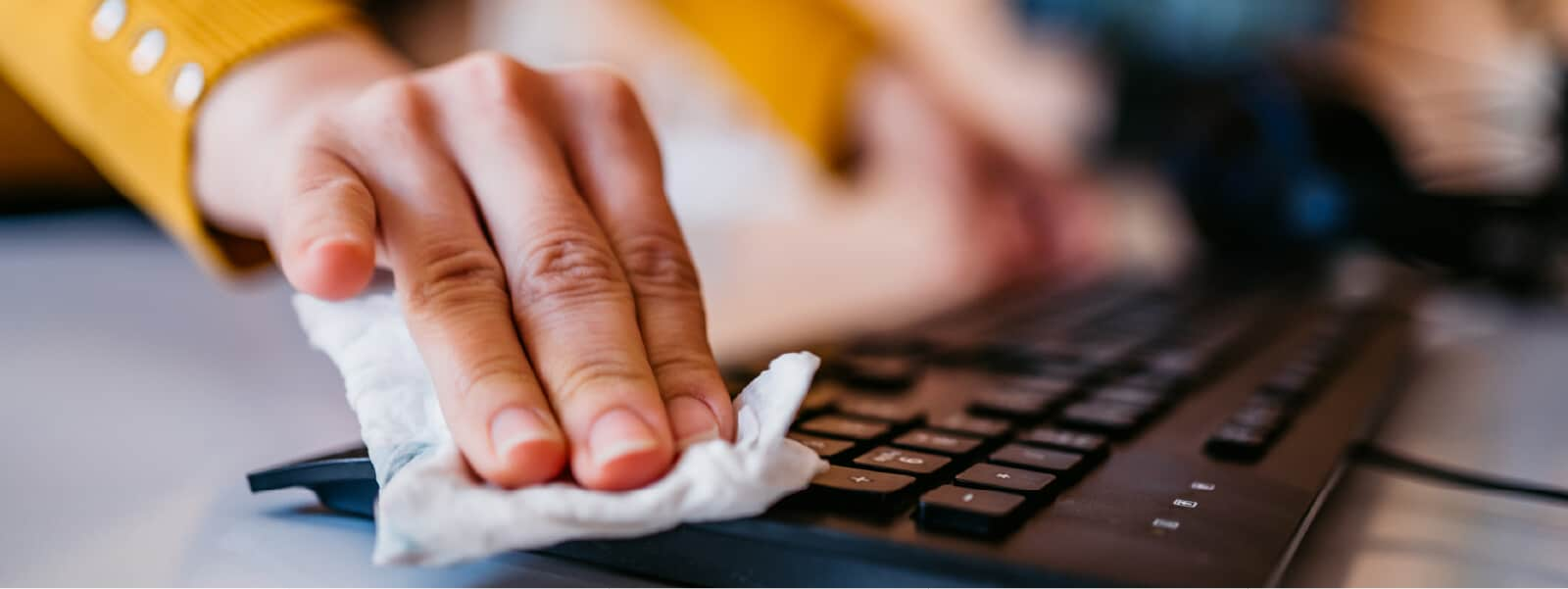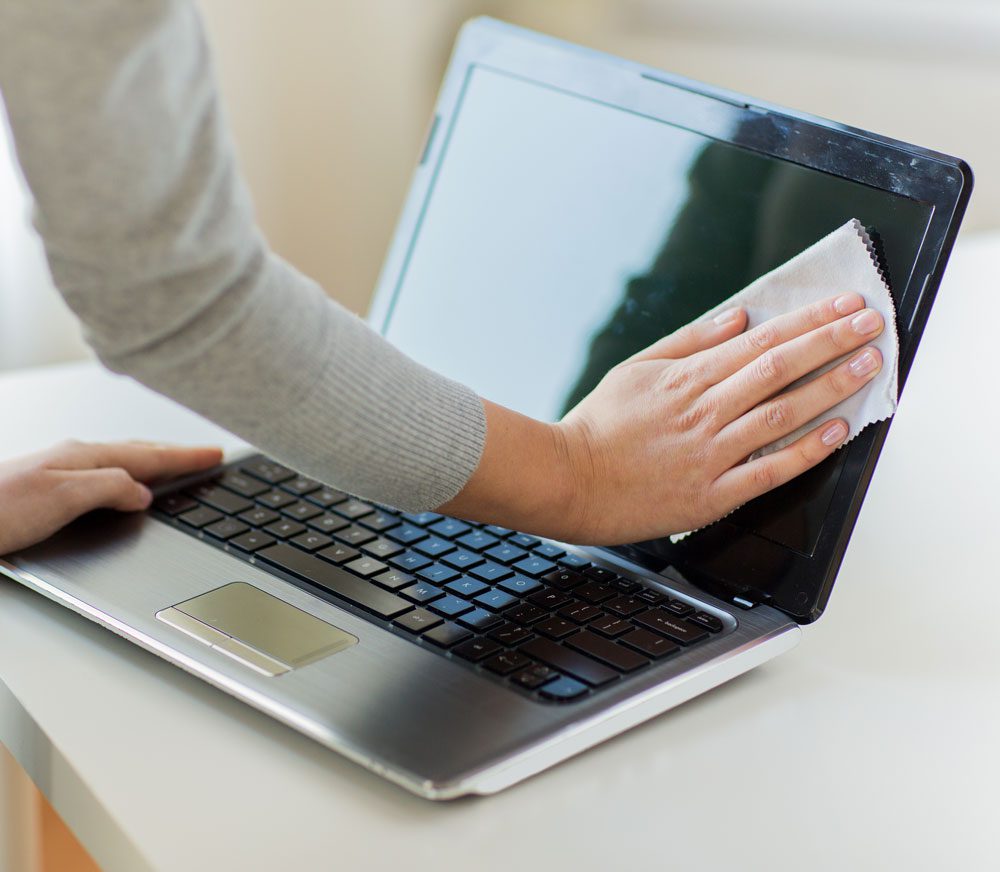Uncategorized
How to Maintain and Clean Your Computer to Extend Its Life
How to Maintain and Clean Your Computer to Extend Its Life
A well-maintained computer not only runs faster and more efficiently but also lasts longer, saving you money in the long run. Regular maintenance and cleaning are essential for keeping your computer in top condition, whether it’s a desktop or laptop. In this guide, we’ll walk you through the key steps to help you maintain and clean your computer to extend its life, improve performance, and ensure it stays free from common issues.
1. Keep Your Computer Clean Physically
One of the simplest yet most effective ways to extend the life of your computer is by keeping it physically clean. Dust, dirt, and grime can accumulate over time, clogging vents, cooling fans, and other internal components. Here’s how to clean your computer properly:
a. Turn Off and Unplug Your Computer
Before you start cleaning, always power down your computer and unplug it from the electrical outlet. If you’re working on a laptop, remove the battery if possible.
b. Clean the Exterior
Use a microfiber cloth to wipe down the exterior of your computer. Avoid using paper towels or rough cloths, as they can scratch surfaces. For stubborn spots, lightly dampen the cloth with water or a 50/50 mix of water and isopropyl alcohol.
c. Clean the Keyboard and Mouse
Keyboards and mice can accumulate a lot of dirt and oils from your hands. To clean your keyboard, use a can of compressed air to blow out dust from between the keys. You can also use a small brush or a microfiber cloth to gently wipe the surface. For the mouse, wipe it down with a cloth, and clean the sensor with a cotton swab.
d. Clean the Vents and Fans
Laptops and desktops have cooling fans and vents to help regulate temperature. Dust can clog these, leading to overheating and slower performance. Use compressed air to blow out dust from the vents, fans, and other hard-to-reach areas. Be sure not to tilt the can or hold it too close to avoid moisture buildup.

2. Regularly Update Your Software
Keeping your computer’s software up to date is crucial for maintaining its performance and security. Regular updates ensure that your system is running smoothly, with the latest bug fixes, security patches, and performance improvements.
a. Update Your Operating System
Both Windows and macOS frequently release updates that improve system stability and security. Make it a habit to check for and install updates regularly, whether they are automatic or require manual installation.
b. Update Software and Drivers
Applications and device drivers should also be updated to ensure optimal performance. Outdated drivers can cause compatibility issues and slow down your system. Check for updates to your software regularly through the application itself or your computer’s settings.
3. Organize Your Files
A cluttered hard drive can slow down your computer and make it harder to find important documents. Regularly organizing and cleaning up your files can help improve your system’s speed and performance.
a. Delete Unnecessary Files
Go through your files and delete anything you no longer need. This includes old documents, duplicate files, and temporary files. Windows and macOS both have built-in tools that help you clean up your hard drive by removing unneeded files.
b. Use Disk Cleanup Tools
For Windows users, the built-in Disk Cleanup tool can help remove temporary files, system files, and other unnecessary data. For Mac users, tools like CleanMyMac can help identify files that take up valuable space.
c. Defragment Your Hard Drive (Windows)
If you’re using a traditional HDD (hard disk drive) on your desktop or laptop, defragmenting the drive regularly can help improve performance by organizing fragmented data. Windows includes a built-in defragmentation tool, but this is unnecessary for SSDs (solid-state drives), which don’t need defragmenting.

4. Protect Your Computer from Malware
Malware, viruses, and other malicious software can cause a significant slowdown in performance and even damage your files. To protect your computer and extend its lifespan, ensure that you have reliable antivirus software installed and run regular scans.
a. Install Antivirus Software
Use reputable antivirus software to help protect your computer from viruses, malware, and spyware. Popular options include Norton, McAfee, and Bitdefender. Many of these programs also offer additional features like firewalls and identity theft protection.
b. Be Cautious with Downloads and Links
Avoid downloading software or opening email attachments from unknown sources. Be cautious of suspicious websites and links to prevent your system from becoming infected. Always verify the legitimacy of files or programs before downloading.
5. Manage Startup Programs
Too many startup programs can slow down your computer’s boot time and consume resources, even when you’re not using them. Limiting these programs can help your computer run more efficiently.
a. Disable Unnecessary Startup Programs (Windows)
In Windows, open the Task Manager by pressing Ctrl + Shift + Esc and go to the Startup tab. From here, you can disable unnecessary programs from running at startup, freeing up system resources.
b. Manage Login Items (macOS)
On a Mac, go to System Preferences > Users & Groups > Login Items. Here, you can remove any programs that you don’t need running automatically when your computer starts.
6. Ensure Proper Cooling
Overheating can lead to poor performance and even permanent damage to your computer’s components. Make sure your computer is properly cooled to avoid these issues.
a. Keep Your Computer in a Well-Ventilated Area
Avoid placing your desktop or laptop in a cramped or hot environment. Ensure that the area around your computer’s vents is clear to allow for proper airflow. If you use a desktop, consider placing it on an elevated surface to ensure better ventilation.
b. Use Cooling Pads for Laptops
If you use a laptop, invest in a cooling pad to help keep temperatures under control. These pads provide additional airflow to prevent your laptop from overheating during heavy use.

7. Backup Your Data
Regularly backing up your data ensures that you won’t lose important files if something goes wrong with your computer. Whether you use an external hard drive or cloud storage, creating regular backups should be part of your computer maintenance routine.
a. Use External Storage Devices
For desktops and laptops, an external hard drive or SSD is a reliable way to back up your data. Simply plug the device into your computer and use backup software to automate the process.
b. Use Cloud Storage Solutions
Cloud storage services such as Google Drive, Dropbox, or OneDrive provide an easy way to back up your files online. These services offer automatic backups and make it easy to access your files from any device.
Conclusion
By following these simple yet effective maintenance and cleaning tips, you can significantly extend the life of your computer, improve its performance, and keep it running smoothly for years to come. Regular physical cleaning, software updates, file management, and protection from malware are key to maintaining your computer’s health. Don’t forget to back up your data regularly and keep your system well-cooled to avoid overheating.
For more tips and advice on maintaining and optimizing your tech, visit corealibladetech.com.


